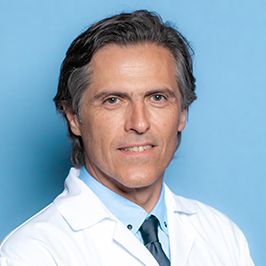Fertility in women above 40
Infertility is defined by the failure to achieve a clinical pregnancy after one year or more of regular unprotected sexual intercourse. Since 2015 has been described as a disease by the World Health Organization (WHO).
The causes are female (30%), male (30%) , mixed (male and female about 20%) and unexplained when no cause has been found in approximately 20% of cases.
Age is well established as the primary predictor of infertility treatments in women.
Once a woman reaches 40 her chances to achieve pregnancy naturally decline and is only about 5 % per each cycle.
For women ages 40 to 44, almost 30 % are infertile compared to only 15 % of women ages 30 to 34 and 7 % of women ages 20 to 25.
When women are born there ovaries contain a specific number of oocytes that are available in their reproductive age.
The mane reason of infertility regarding the age is the reduction of the number of oocytes available in the ovaries. As the ovarian reserve declines, the quality is also reduced by means of genetic abnormalities which leading to abnormal embryos enable to implant and follow a healthy pregnancy.
In addition, not only it is harder to get pregnant in this group of age but also the risk of miscarriage and give birth to a baby with chromosomal abnormalities is higher. At age 20 – 25, a woman’s risk of miscarriage is 10 %, at 30 – 35 the risk is 12 %, at 40 – 44 the risk 35%, and at over age 45 the risk of miscarriage is almost 55% according to ASRM (American Society of Reproduction Medicine).
The number of women older than 40 years having difficulty to conceive spontaneously and being treated for infertility has increased more than 10-fold in the last 15 years.
Before treatment a detailed investigation should be performed by a specialist. A personal medical history and a family history is imported to detect any personal or hereditary diseases which could be related to infertility. A vaginal ultrasound scan is also important to exclude anatomical pathologies as fibroids, polyps, ovarian cysts e.t.c. In addition a hormonal profile for evaluation of FSH, LH, Estradiol and thyroid function should be performed. Anti Mullerian Hormone (AMH) in combination with the ultrasound scan can give us information about the ovarian reserve.
There are different types of treatment available and should be individualized according to the history of each woman and the cause of infertility.
Intrauterine insemination is relatively painless and non invasive procedure which can be performed in a natural cycle or with ovarian stimulation.
IVF is the most effective and commonly performed treatment in this group of age. The are different protocols that can be used. With the natural cycle a single oocyte obtained by aspiration of the follicle either with local anesthetic or with sedetion , fertilized in the lab and transferred in to the uterine cavity usually 3 to 5 days afterwards. Embryos that reach in the 5th day (blastocysts) have more chances to implant.
The ovarian stimulation is more effective as we obtain a higher number of oocytes/embryos. The most common protocols are the long one and the short with antagonist with a mean of 9-10 days of stimulation. The embryo transfer in blastocyst stage increasing again the rate of success.
Pre implantation diagnoses for aneuploidy screening (PGS) has been used to detect chromosomally euploid embryos. A biopsy of the embryos performed usually at the blastocysts stage and only the euploid (chromosomally healthy) embryos used. This method increasing the rate of success and decreasing the miscarriage rate in women with advanced age.
Oocyte donation is a very effective method for women with low quality oocytes, ovarian disfunction or repeated implantation failure.
As fertility decline with age, women in 30-35 years old who do not think to conceive either for medical or social reasons, preservation of oocytes or ovarian tissue is an effective method so that can use them in the future.



